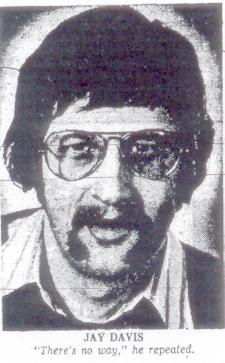| As we
grow older and farther away from the days when a Saturday night record
hop could make our week, it's easy to forget for months at a stretch that
a whole segment of the population is always passing through that phase.
Ratings demographics show huge gains of teen-age audiences for TV and radio programs after school hours, and no area of broadcasting profits more at this time than the hard-rock or "contemporary music" stations. KQV, for example, quintuples its teen-age audience during the 3 to 7 p.m. period over the 10 a.m. to 3 p.m. period. The influence of this influx of listeners is so great during these hours that even the total audience, irrespective of age, triples. The impact of teen-oriented stations continues from 7 p.m. to midnight, showing its strength in a different way. While almost all radio stations lose a great portion of their audience after the evening drive-time (dinner) hour to prime-time TV programming, teen-stations usually lose proportionally less of their audience. Because such stations program their music to such a specific audience, their ability to hang onto this audience is easy to reconcile. The influence, then, of such stations as KQV and WIXZ, or even WAMO and WZUM, on the teen-age audience can be considerable. Largely by virtue of his time and station, that makes Jay Davis one of the most-listened-to of the local teenie-bopper leaders. His regular hours on KQV are from 10 p.m. to 2 a.m. daily, though he's subbing on a day shift until March 15. A Squirrel Hill native and resident who could pass for a young Peter ustinov, Jay has a |
 For example, on hearing that "it's natural for adults to pay less attention to a rock station as they get older," he said: "I don't think it's natural. My dad's listening to it with more and more frequency." On the idea that music about drugs can somehow influence or enhance their use: "I love that argument because it's so wrong. Remember the Beach Boys and their surfing songs? The Beach Boys didn't invent surfing. They didn't really make it any bigger. They were just reflecting What it was. "Drugs are very much a part of our society today, from the housewife taking sleeping pills to the things you hear about going on in the street. They're just reflecting it. There's no way they're causing it." He admitted that cars and surfing are portrayed glamorously in music, but added: "I can't think of any song we've played that put drugs in a good light. It's either just commented on or something bad is said about it. We just |
won't play a song that said: Go
out and smoke your head off."
Though operas, he said, fall outside his realm of enjoyment, Jay said no record would offend him "word-wise because I'm of the belief that if a person wants to express his belief, that's his prerogative, even if his philosophy disagrees completely with mine. "The song that we got a lot of phone calls on was 'God', by John Lennon. I had people calling and telling me that Lennon is a dirty Communist. John expresses the fact that he doesn't believe in God. "I think he means that he believes in himself, and you have to have to have faith in yourself. I don't know how not believing in God makes him a Communist. They're confusing religion with politics. All he was saying was what he believed." A fan of Beatles music ("You can't knock the Beatles. There's no way you can knock the Beatles"), Jay has other ideas about the recently split-up group behind the scenes: "I think John Lennon is a very unhappy person," he said, "a very bitter person. He's a Liverpool roughneck, and I think it's all coming back now. Maybe he's putting us on. That could be true, too." Formerly a student at Pennsylvania State University and Point Park College, Jay's advice to teen-agers who want to get into broadcasting is to continue their education. After a lengthy discussion of religion and politics, he drew the conclusion that "the most important thing in life is not to abuse people. "How did we get into all this anyhow?" he asked finally. "I thought we'd have a nice light discussion about radio." |